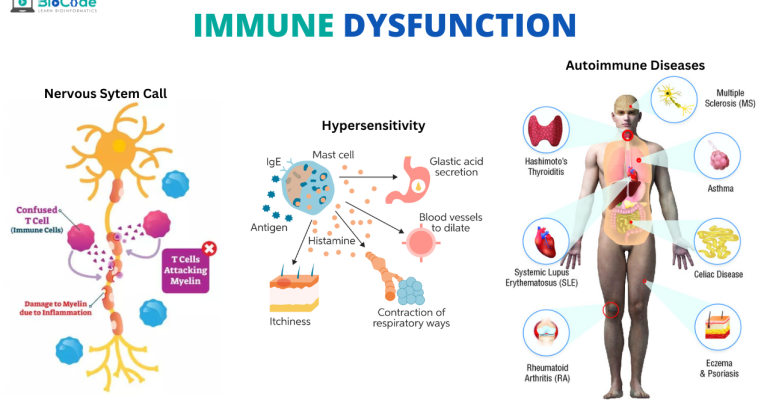Response to Vance
Vance, your post on immune dysfunction is informative and engaging. I want to highlight treatment options for immune dysfunction. According to Krause, Kavathas, and Ruddle (2019), immune dysfunction can be treated by various methods, like antimicrobial therapy. It involves consuming antimicrobial medications like antibiotics and antifungals against bacterial infections. Besides, immune globulin replacement therapies are also effective in improving immune function. The affected patients are injected with gamma globulin antibodies to replace the IgG antibodies in their blood.

Moreover, immunocompromised individuals can also be treated with pathogen-specific immune globulins to aid prophylaxis against a dangerous pathogen (Krause, Kavathas & Ruddle, 2019). They include specific IgG treatment for Hepatitis B and rabies. Other treatment options include bone marrow and thymus transplantation. Van Zelm, Condino-Neto, and Barbouche (2020) assert that infection prevention is the most appropriate immune system protection. Individuals can prevent infections by regularly washing their hands with soap and water, immediately cleaning cuts, and ensuring that vaccinations, such as against influenza, are up to date.
References
Krause, P. J., Kavathas, P. B. & Ruddle, N. H. (2019). Immunoepidemiology. Cham, Switzerland: Springer. https://doi.org/10.1007/978-3-030-25553-4
van Zelm, M. C. Condino-Neto, A. & Barbouche, M.-R. (2020). Primary immunodeficiencies worldwide. Frontiers Media SA. https://directory.doabooks.org/handle/20.500.12854/73672.
Response to Jennifer (Immune Dysfunction)
Jenifer, this is an excellent post. I want to expand on the effects of autoimmune diseases and gastrointestinal infections on individuals. Autoimmune disorders can affect any body organ, forcing the immune system to attack it instead of protecting it, resulting in autoimmune diseases like psoriasis, Crohn’s disease, and pernicious anemia (De Luca & Shoenfeld, 2019). Its effects include skin diseases like itching, hair loss, and inflammation. It can also cause fatigue, insomnia, memory loss, acid influx, and muscle weakness, all of which make it challenging for the affected individuals to perform daily activities effectively.
Consequently, gastrointestinal infections also affect people’s daily lives. Rosenthal (2021) explains that viruses, bacteria, and parasites infect the gastrointestinal tract, causing gastroenteritis, and negatively impacting individuals. The infected people have diarrhea, vomit, and experience abdominal pain. These infections impair the body’s ability to defend itself, hence the need for regular screening to aid prevention. Appropriate medications should also be administered when the disease is diagnosed immediately to reduce the worsening of the condition.
References
De Luca, F., & Shoenfeld, Y. (2019). The microbiome in autoimmune diseases. Clinical & Experimental Immunology, 195(1), 74–85. https://doi.org/10.1111/cei.13158
Rosenthal, M. E. (2021). Gastrointestinal Infections. Geriatric Gastroenterology, 1655-1674. 10.1007/978-3-030-30192-7_72
